arts and crafts
The art of needles
Manual crafts rescue ancient traditions
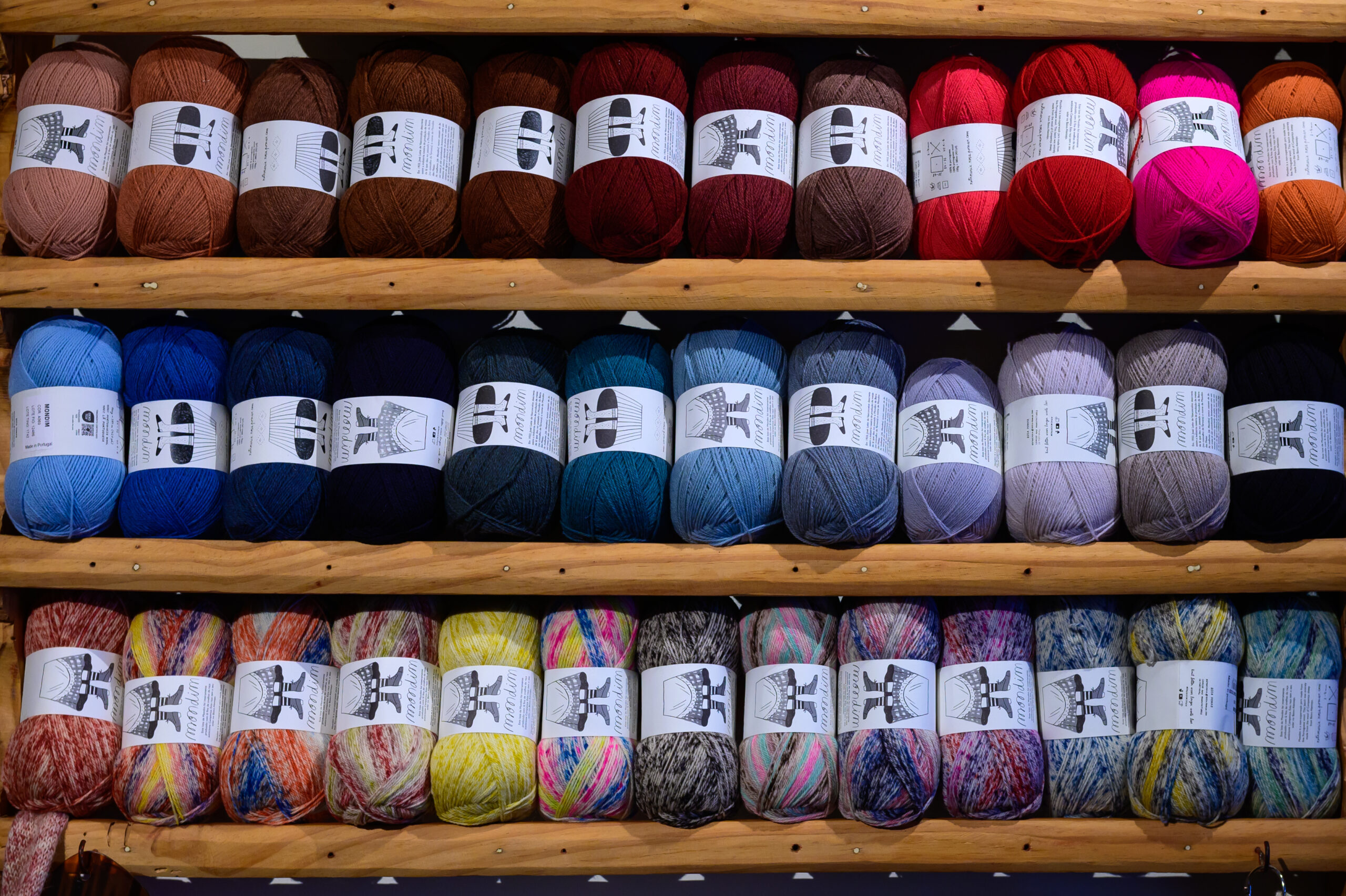
In recent years, interest in crafts that use needles, such as knitting, crochet and different types of embroidery, has grown significantly. This knowledge, which carries ancient traditions and cultural ties, has gained new life with the search for activities that promote relaxation, creativity and sustainability.
To respond to this trend, several spaces have been dedicated to promoting courses and workshops, both for beginners and for people experienced in these artisanal practices. But what these spaces offer goes far beyond technical learning; They create true networks of connection and exchange of experiences between participants.
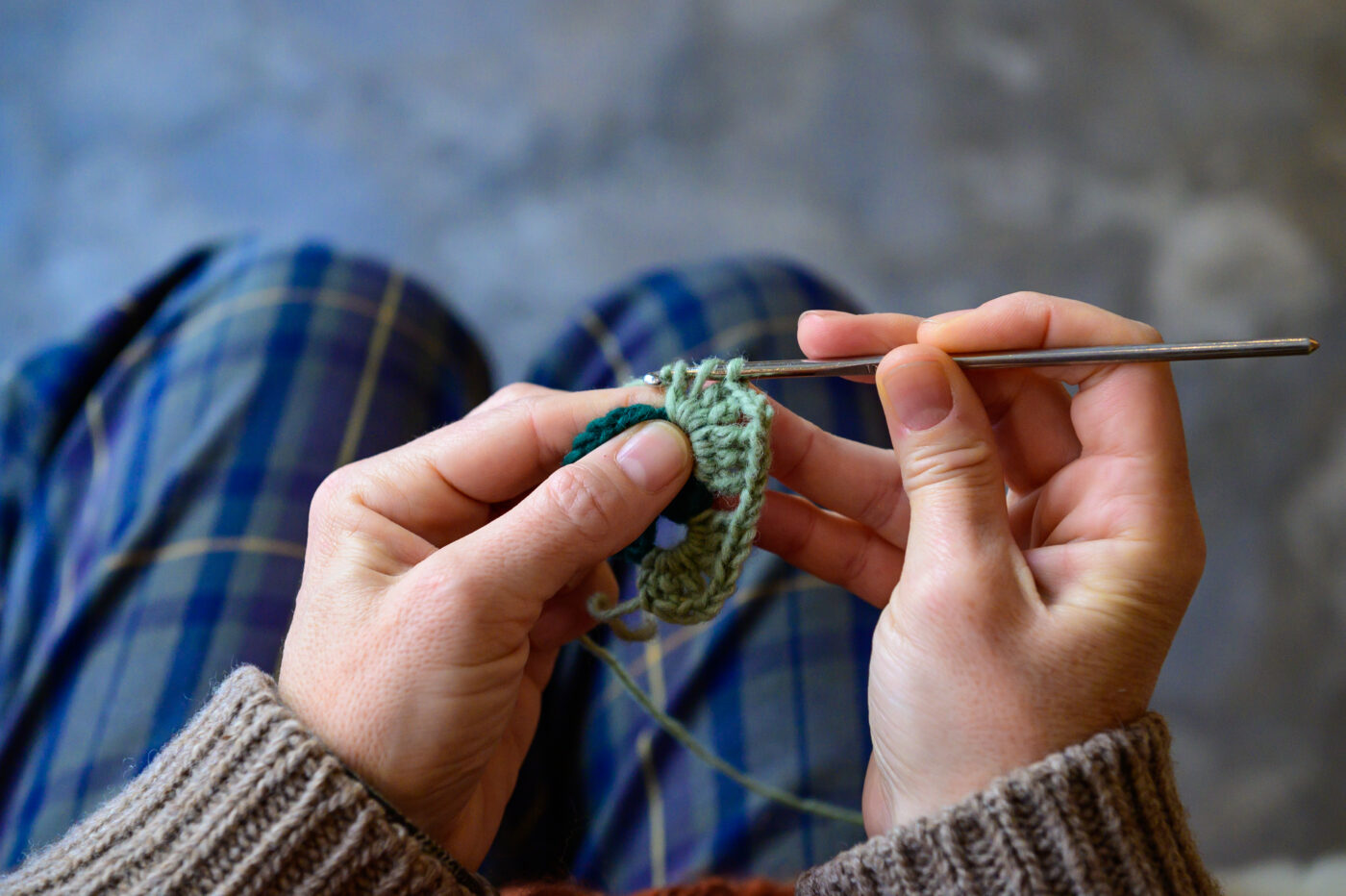
Retrosaria Rosa Pomar
Rua Maria Andrade, 50A / 213 473 090
At Retrosaria Rosa Pomar we are welcomed by lots of color, thanks to the balls of yarn, skeins and fabrics that cover the various tables and shelves in the wide space. The one that is considered a reference in the city for knitting lovers has as its main mission to value the wool of Portuguese sheeps. “Our main focus and difference in relation to other stores is the fact that we make our own yarns, exclusively with wool from sheep of native Portuguese breeds. We have been working for more than a decade to defend these breeds and make the most of this raw material. In addition to working to promote native wool, we have created a series of knitting threads, each different from the other, using wool from different breeds, which we also export abroad,” Rosa tells us.
In addition to selling yarn, the haberdashery also focuses on training, something that has been present since the store’s inception and which arose due to “a gap in the market”. The knitting workshops are taught by herself, but there are more tasks in the textile area to learn or improve, always through traditional techniques, such as crochet, different types of embroidery, tapestry, sewing, among many others. “Teaching people to work with their hands is a very beautiful thing to do. People leave here with a big smile and often proud of a new achievement. The fact of being able to create something with your own hands is a power that has been lost over time, but it is fantastic and brings a lot of joy and well-being.”

Auri Retrosaria
Rua Oliveira Martins, 10E / 961 201 042
Auri is a traditional, old-fashioned haberdashery, where there are balls of wool, spools of thread, sewing kits and all imaginable accessories for needlework everywhere. Founded in 1961, it is more than just a store, it is a place for socializing. Proof of this are the weekly knitting meetings that it promotes and that even extend outwards: “We have a very funny situation, which is the Knitting Museum. Every month, a group of ladies visit a museum and knit in that museum. And we also do weekend retreats. It’s really cool, it’s a fabulous thing”, says Adelina, current owner of the space.
In addition to knitting classes, the store also offers classes in crochet, wool embroidery, patchwork and creative sewing, and as part of the RADAR Project of Santa Casa da Misericórdia de Lisboa, which aims to promote more supportive, communicative and attentive neighborhoods to the population over 65 years old at risk of isolation and unwanted loneliness, it works in an integrated way to contribute to the well-being and better quality of life of these people through teaching knitting. This technique of intertwining the thread is, in fact, Auri’s biggest bet, as Adelina explains: “Our strength is knitting. Every year we go to Jardim Fernando Pessa to celebrate World Public Knitting Day and we also have the Knitting Newspaper, which is published monthly.”
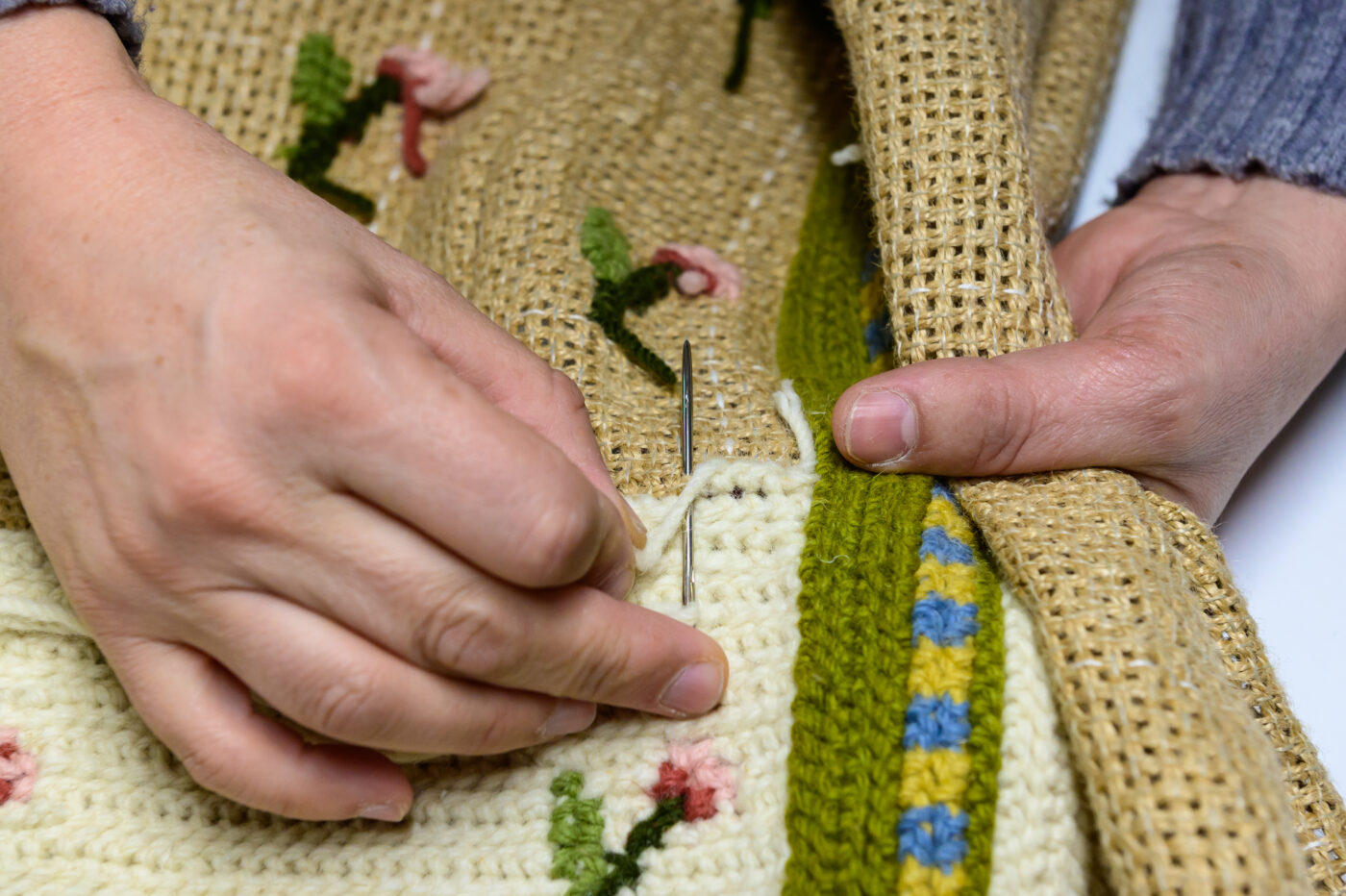
Associação dos Artesãos da Região de Lisboa
Rua de Entrecampos, 66 e 66A / 217 962 497
Since 1982, the Arts and Crafts Workshops of the Lisbon Region Artisans Association (AARL) have been teaching a variety of skills, offering courses in a wide range of areas, such as creative and figurative ceramics, conservation and restoration of crockery, bookbinding, pottery, painting on tiles, furniture restoration, among others. In fact, anyone who enters number 66 on Rua de Entrecampos cannot imagine what the space hides as soon as they go down to the basement. Several workshops equipped with all the necessary materials to develop the most diverse crafts, all with work taking place, which makes this place a place for socializing and sharing. In the textile area, the association offers courses in weaving, embroidery and Arraiolos, where traditional Portuguese techniques are learned.
AARL supports its members in promoting and selling their products, but, according to Carina Trigueiros, “the basis of the association has always been training”. “It is one of our pillars. Training has always been very important in our founder’s goals; reaching people, everyone. Our classes have no age limit, no gender limit, no limit on whether you are a member or not, everyone can participate”, she says. “People come here for many reasons: some come just to learn a little something, some come to distract themselves, others come to learn techniques, to develop their own work. There are even people who, after being here for a while, open their own business and become real artisans”.
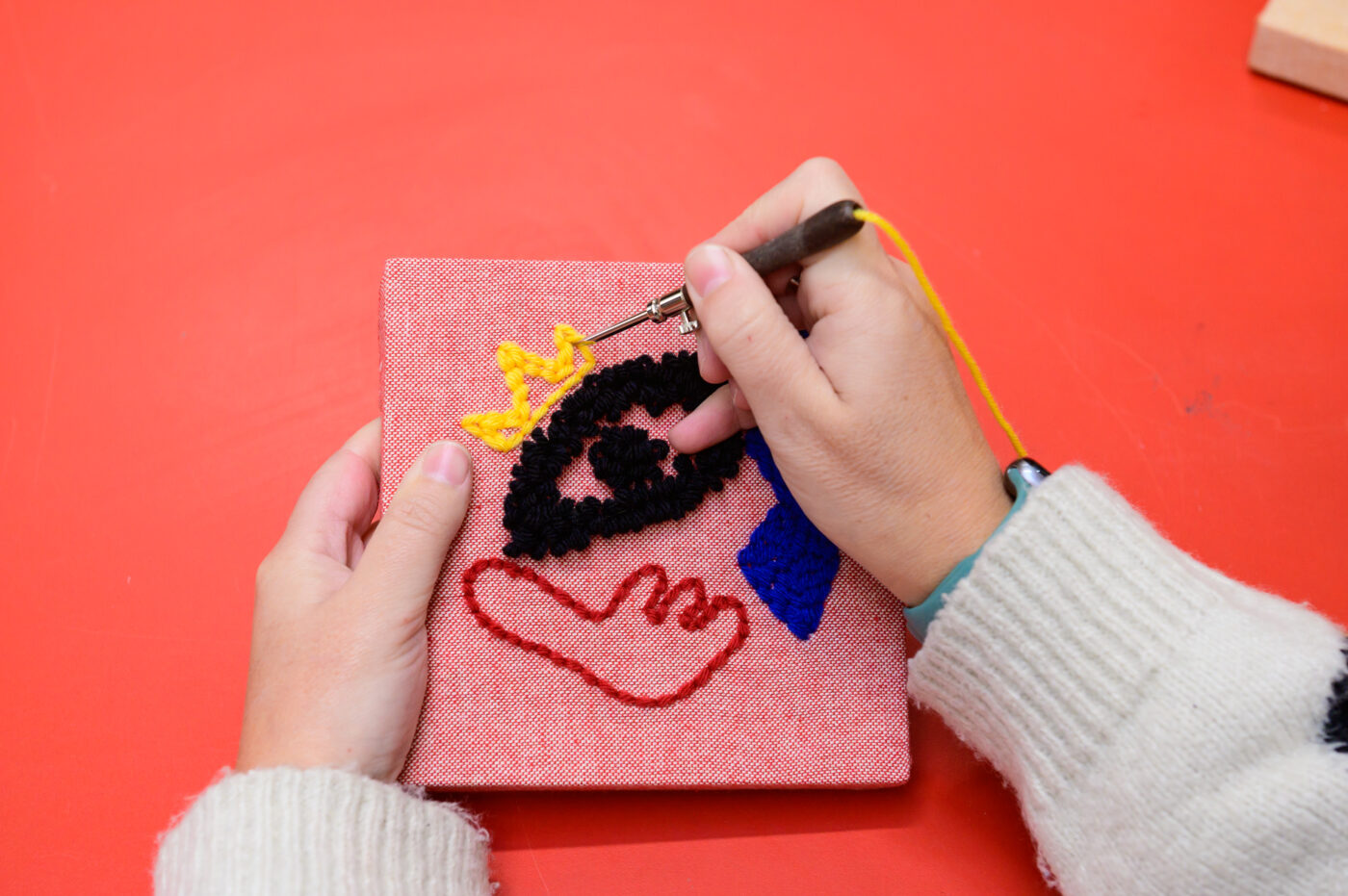
FICA – Oficina Criativa
Rua de Arroios, 154B / 913 190 670
The space is very spacious and well lit. There, everything is ready for you to get to work. The 300m2 are open to curious people and professionals who want to learn a trade – through workshops or masterclasses -, or carry out their own projects, either independently or with personalized help – through the Ginásio de Ofícios, a modality where everyone can enjoy the fully equipped workshop with machines and tools to carry them out. A creative space for which the democratization of knowledge and access to technical workshops is a priority, it offers training in areas as diverse as screen printing, carpentry, ceramics and textiles.
Regarding this last manual craft, FICA offers workshops in tufting, punch needle, weaving, embroidery on fabric, introduction to embroidery, tapestry, crochet, smyrna, among others. The objective, according to Rita Daniel, “is to transmit as much as possible what manual techniques and crafts are, trying to have a somewhat pragmatic offer. Although our workshops are focused on transmitting the technique in a very direct and practical sense, we do not want to make the craft and the know-how involved easier; The idea is for people to have knowledge that will allow them to later value the pieces that are made by hand and to value the artisan themselves”.
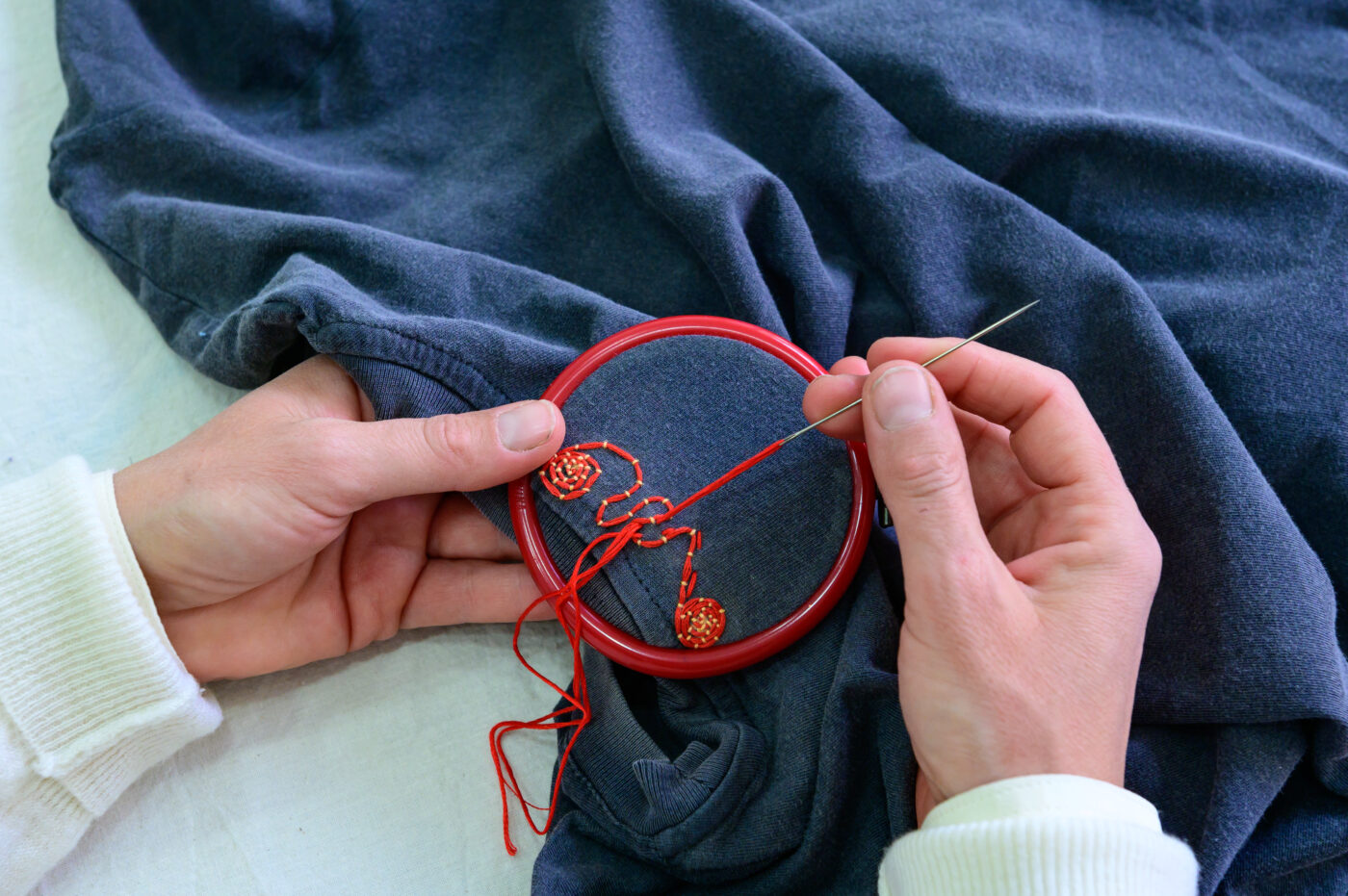
Artlier
Rua Gervásio Lobato, 47B / 933 932 532
A school of arts and crafts, Artlier brings together knowledge and leisure, presenting itself as a space for sharing knowledge, learning by doing and learning how to do. It is a place to tell stories and tales of people and customs, a place to rescue time and traditions, and it does so through courses and workshops in areas as diverse as textiles, wood, ceramics, painting and drawing. In relation to textiles, Joana Teixeira questions us: “textiles are a world, aren’t they? It’s a little door that opens and is gigantic.”
In this area, Artlier offers training in, among others, classic knitting, crochet, tapestry, Arraiolos embroidery, free embroidery on paper, knitted patching and fabric patching, the latter two being the most recent workshops, and Joana explains why: “The school started in 2002 with furniture restoration and wood restoration. And, over time, more were added, but always with a view to recovery, restoration and repair. Additionally, the mending process combines the environmental importance of a more circular wardrobe and the mental and creative benefits of hand sewing.” The objective of this workshop is to learn ways to recover and intervene in damaged garments, extending their use and giving them more value.